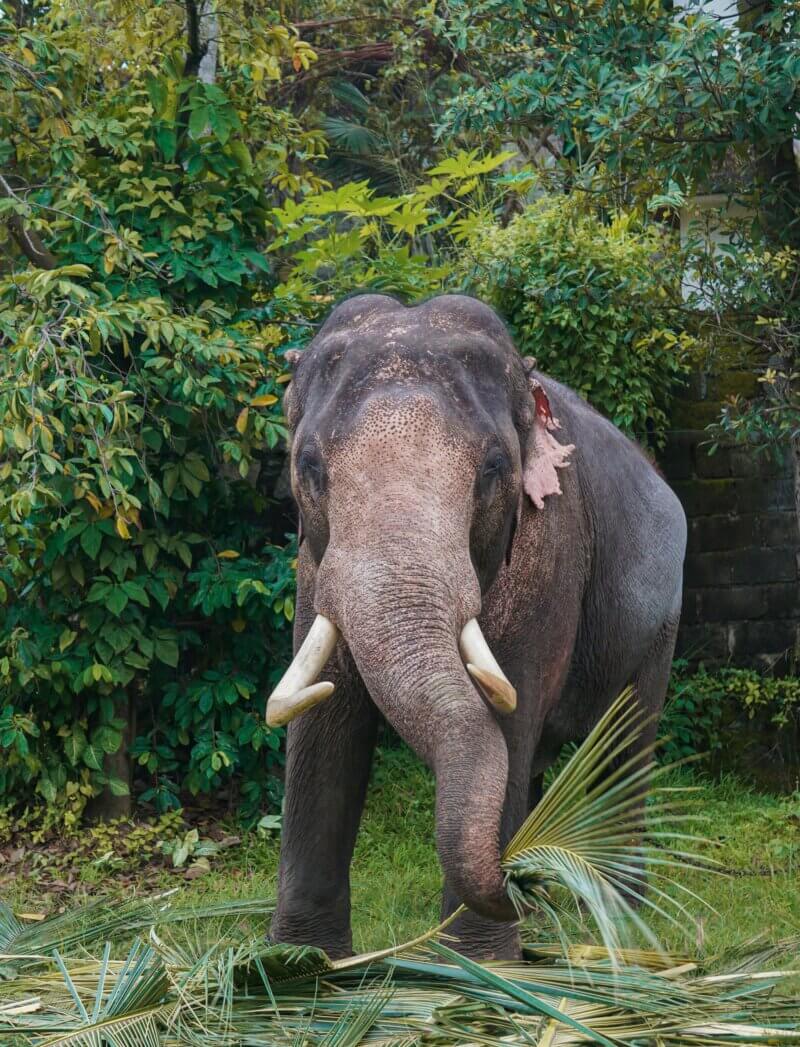Jhargram: FIR for Killing of Elephant by Flaming Spear Updated With Stringent Charges of Illegal Use of Arms and Cruelty, After PETA India Steps In
Following a horrific incident in which a pregnant wild Asian elephant, a species protected under Schedule I of the Wild Life (Protection) Act (WPA), 1972, was killed apparently by a flaming spear, PETA India intervened to help ensure that justice would be served to the fullest extent of the law. The group worked to have relevant stringent provisions added to the first information report (FIR) that were left out when it was initially registered on 16 August. PETA India sent a letter to and met with West Bengal’s chief wildlife warden requesting that inter alia Section 325 of the Bharatiya Nyaya Sanhita (BNS), 2023, and Section 11(1) of The Prevention of Cruelty to Animals (PCA) Act, 1960, be included in the FIR. PETA India further requested that the illegal use of arms and ammunition during the incident be investigated to ascertain a violation of the Arms Act, 1959.
An FIR was initially registered against an unknown individual, allegedly a member of a hula party (informal elephant chasers), for using fire-tipped iron spears, or mashals, against a herd of elephants. This complaint was filed by the forest range officer under sections 9 and 51 of the WPA, 1972. After PETA India’s intervention, more stringent provisions – Section 325 of the BNS, 2023, and Section 11(1) of the PCA Act, 1960 – have now been incorporated into the FIR. The Jhargram superintendent of police informed PETA India that based on prima facie evidence of the illegal use of arms collected during the investigation, Section 27(1) of the Arms Act, 1959, has been added to the FIR and two accused individuals have been arrested and remain in jail after their bail plea was twice rejected in court. The addition of this section of the Arms Act, 1959, which is a non-bailable offence, should make it even more difficult for the accused to secure bail.
Section 27(1) of the Arms Act, 1959, prescribes the punishment for the illegal manufacture and use of arms as a jail term of at least three years – but which may extend to seven years – as well as a fine. Section 9 of the WPA, 1972, prohibits the hunting of protected wild animals. Killing a Schedule I species, such as an elephant, is also punishable by a jail term of at least three years, which may be extended to seven years, and a fine of at least Rs 25,000. Section 325 of the BNS, 2023, makes the maiming or killing of any animal a cognisable offence and provides for a jail term of up to five years, a fine, or both. Additionally, Section 11(1) of the PCA Act, 1960, defines acts that are considered to be cruel to animals and makes the same punishable by law. In particular, Section 11(1)(l) makes it a cognisable offence to kill or mutilate an animal. Reinforcing these laws, the Supreme Court of India, vide its order dated 1 August 2018, directed that no spikes, fireballs, or similar methods may be used to drive elephants and that states must remove such devices and cease their use immediately.
Asian elephants are endangered and essential to forest health. They are seed dispersers who help mitigate carbon dioxide release and maintain healthy forests through the effect of their activities and movement.








